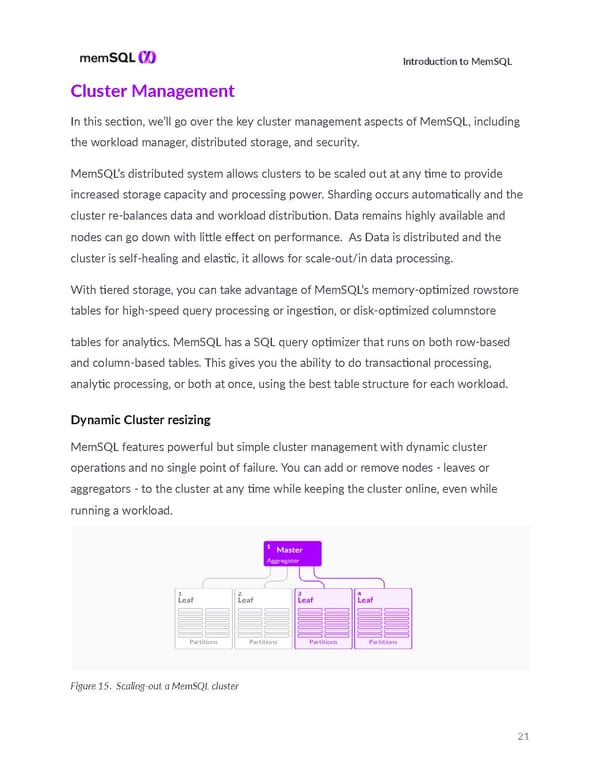I ntroducon to MemSQL Cluster Management In this secon, we’ll go over the key cluster management aspects of MemSQL, including the workload manager, distributed storage, and security. MemSQL’s distributed system allows clusters to be scaled out at any me to provide increased storage capacity and processing power. Sharding occurs automacally and the cluster re-balances data and workload distribuon. Data remains highly available and nodes can go down with lile effect on performance. As Data is distributed and the cluster is self-healing and elasc, it allows for scale-out/in data processing. With ered storage, you can take advantage of MemSQL’s memory-opmized rowstore tables for high-speed query processing or ingeson, or disk-opmized columnstore tables for analycs. MemSQL has a SQL query opmizer that runs on both row-based and column-based tables. This gives you the ability to do transaconal processing, analyc processing, or both at once, using the best table structure for each workload. Dynamic Cluster resizing MemSQL features powerful but simple cluster management with dynamic cluster operaons and no single point of failure. You can add or remove nodes - leaves or aggregators - to the cluster at any me while keeping the cluster online, even while running a workload. Figure 15. Scaling-out a MemSQL cluster 21
 Technical Introduction to MemSQL Page 20 Page 22
Technical Introduction to MemSQL Page 20 Page 22